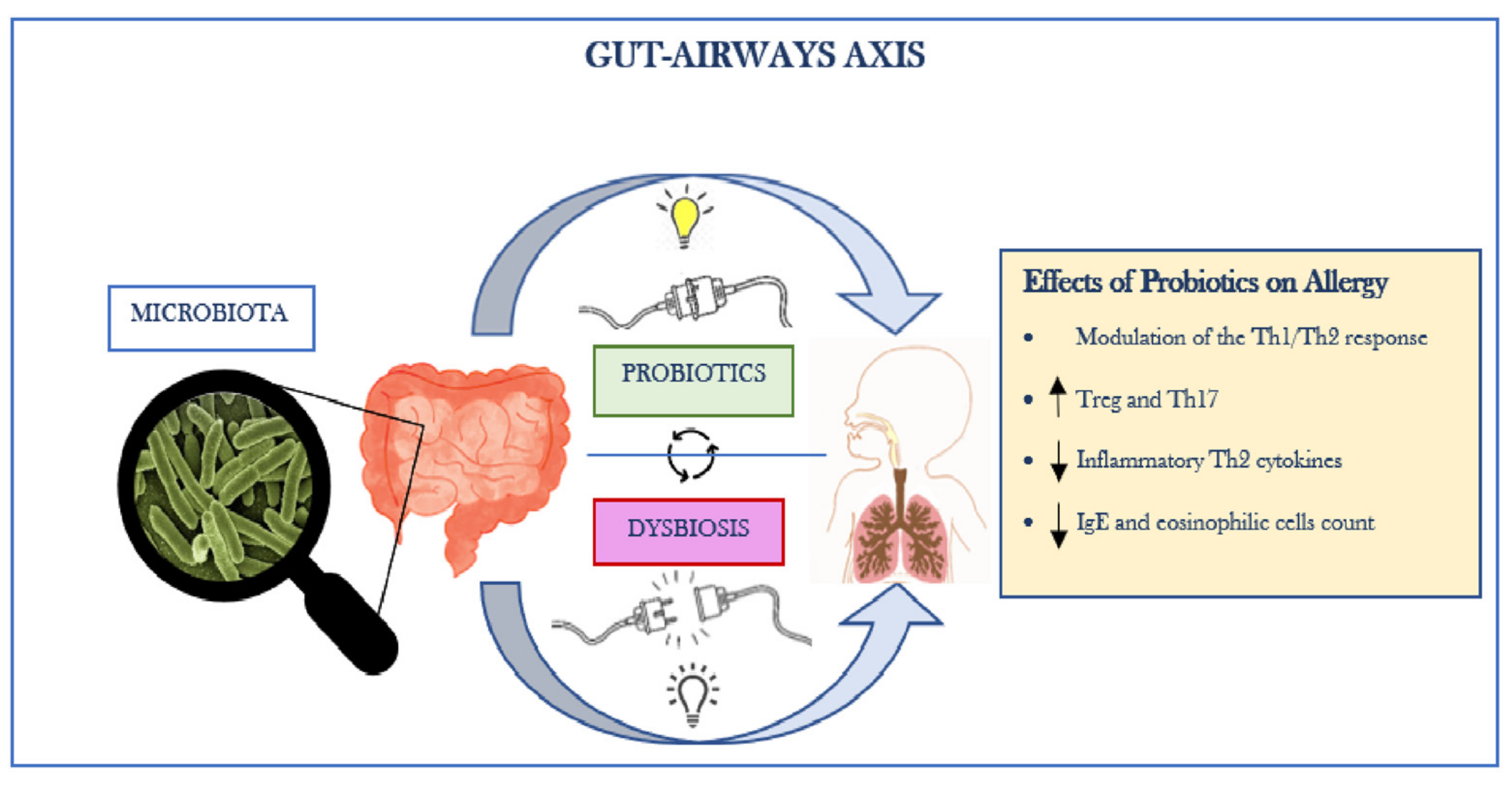Harnessing the Power of the Gut: The Emerging Science of Probiotics and Prebiotics
The human body is host to an incredibly complex and diverse ecosystem of microorganisms collectively known as the microbiota. Residing predominantly within our gastrointestinal tract, these microscopic denizens play a critical role in our overall health. The rise of scientific interest in this microscopic world has given birth to a burgeoning field of research centered on probiotics and prebiotics—components in our diet that can have profound effects on our well-being.
Probiotics are live microorganisms that, when administered in adequate amounts, confer a health benefit on the host. These beneficial bacteria are found in a variety of fermented foods such as yogurt, kefir, sauerkraut, and kimchi, as well as in dietary supplements. The most common strains belong to the Lactobacillus and Bifidobacterium genera, but the variety of probiotic organisms is vast and still being explored.
On the other hand, prebiotics are non-digestible fibers that serve as food for our gut bacteria, particularly those associated with health benefits. These substances are naturally occurring in many fruits, vegetables, and whole grains like bananas, onions, garlic, and oats. Prebiotics escape digestion in the upper part of the gastrointestinal tract and are fermented by the gut microflora in the colon, promoting the growth and activity of helpful bacteria.
The synergy between probiotics and prebiotics is also gaining attention. This interplay, termed "synbiotics," refers to food ingredients or dietary supplements combining both probiotics and prebiotics in a form of mutual benefit, fostering a conducive environment for these microorganisms to thrive and exert their beneficial effects.
One of the significant areas of interest is how these microorganisms affect gut health. A balanced microbiome has been associated with improved digestion, enhanced immune function, and even a potential reduction in the incidence of certain diseases. Conditions such as irritable bowel syndrome (IBS), inflammatory bowel diseases (like Crohn’s disease and ulcerative colitis), and antibiotic-associated diarrhea have all been targets for probiotic and prebiotic interventions with varying levels of scientific support.
Beyond the confines of the gut, these microorganisms may influence systemic health issues. Recent studies have associated a healthy gut microbiota with a lower risk of developing conditions such as obesity, type 2 diabetes, and cardiovascular diseases. The mechanisms behind these protective effects are complex and involve a delicate interplay between gut microbes, dietary components, and host metabolism.
But what does the science say about the efficacy of probiotics and prebiotics? Clinical trials have validated some health claims but also called into question others. For instance, specific probiotic strains have been shown to be effective in preventing antibiotic-associated diarrhea and treating pouchitis, a complication of surgery for ulcerative colitis. Yet, the results for other conditions remain inconclusive, with variation in outcomes likely due to differences in the probiotic strains used, doses, and durations of treatment.
As with any evolving field, the challenges are many. Standardizing probiotic strains, ensuring their viability during storage and use, and understanding their interactions with diverse human microbiomes are significant hurdles. Plus, deciphering which prebiotics are most beneficial and how they should be consumed for optimal effect are areas of ongoing research.
From a regulatory standpoint, the categorization of probiotics as either dietary supplements or drugs, depending on their intended use, raises further questions about quality control and the verification of health claims. Consumers are often left to navigate a market flooded with products boasting probiotic and prebiotic benefits, with limited guidance on their actual efficacy.
The potential of probiotics and prebiotics extends into the realms of allergy prevention, augmenting mental health, and even combating antimicrobial resistance. The exploration of these frontier areas within the context of the gut microbiota is not only exciting but also paramount to harnessing the full spectrum of health benefits that these microscopic allies may offer.
As research marches forward, it is imperative for scientists and health professionals to communicate their findings responsibly, avoiding overstatements and ensuring that recommendations are built upon a solid foundation of evidence. Meanwhile, consumers should remain discerning, seeking professional advice before turning to probiotics and prebiotics as therapeutic agents.
This fascinating journey into the gut's microscopic world is unearthing the interconnectedness of our diet, microbiota, and health. With careful research and thoughtful application, we stand on the brink of a new era where manipulating our microflora could become a mainstay of preventive medicine and comprehensive healthcare strategies.
As we delve deeper into the potential of probiotics and prebiotics, a new paradigm of personalized nutrition begins to emerge. The uniqueness of each individual's microbiota suggests that a one-size-fits-all approach to gut health may be inadequate. This realization has spurred interest in personalized probiotic and prebiotic interventions—tailored regimens that cater to the specific microbial makeup of an individual.
In the pursuit of personalization, scientists are employing advanced technologies such as metagenomics, metabolomics, and bioinformatics. These tools allow researchers to unravel the complex microbial communities within us and understand their functional potential. Such insights are instrumental in identifying which microorganisms might be beneficial for particular health conditions and what prebiotic compounds might best support them.
In addition to providing a more customized approach, ongoing studies are investigating the role of probiotics and prebiotics in modulating the gut-brain axis—a bidirectional communication network between the central nervous system and the enteric nervous system. While the evidence is still nascent, some research suggests that certain probiotics, often referred to as psychobiotics, may have the potential to alleviate symptoms of depression and anxiety, possibly by affecting neurotransmitter levels and reducing inflammation.
Another emerging area of interest is the influence of the microbiota on drug metabolism. The microbial composition of the gut can affect how drugs are metabolized, which can have significant implications for their efficacy and safety. This insight opens the door to optimizing drug therapies based on an individual's microbiome, reducing adverse effects, and improving outcomes.
Despite the enthusiasm surrounding probiotics and prebiotics, it is essential to recognize their limitations and the reality that more research is needed. For instance, while some studies show promise in using probiotics to treat or prevent eczema in children, the evidence is mixed for other allergic conditions such as asthma. Additionally, several clinical trials have reported no benefits of probiotics for weight loss, highlighting the complexity of metabolic disorders and the multifactorial nature of obesity.
The gut microbiota is also influenced by various factors beyond diet, including genetics, age, environment, and lifestyle. Consequently, fostering a healthy microbiome may require a holistic approach, incorporating not only targeted probiotic and prebiotic interventions but also broader lifestyle modifications such as stress reduction, regular exercise, and adequate sleep.
Furthermore, questions remain regarding the long-term consequences of altering the gut microbiota. The introduction of foreign microorganisms via probiotics could potentially lead to unintended ecological shifts within the microbiome. Similarly, excessive or imbalanced prebiotic intake could favor the growth of less desirable bacteria. These risks underscore the importance of proceeding with caution and basing clinical applications of probiotics and prebiotics on robust scientific evidence.
Regulatory bodies face the challenge of keeping pace with scientific advancements to ensure that consumer products are both safe and truthfully marketed. The establishment of clear guidelines and quality benchmarks for probiotic and prebiotic products is crucial for enabling informed consumer choices and ensuring public confidence in these interventions.
Education will play a pivotal role in guiding both healthcare professionals and the general public through the intricacies of probiotics and prebiotics. With research evolving rapidly, ongoing professional development and public outreach efforts are necessary to disseminate current knowledge, dispel myths, and facilitate evidence-based decisions.
As we continue to unravel the mysteries of the microbiome, the promise of probiotics and prebiotics in enhancing health is tantalizing. Yet it is tempered by the responsibility to adhere to rigorous scientific methods and ethical considerations. The path forward is foundational but not without its challenges. It is through continued research, collaborative efforts, and thoughtful discourse that we can fully harness the power of the gut and its microscopic inhabitants for the betterment of human health.










Comments